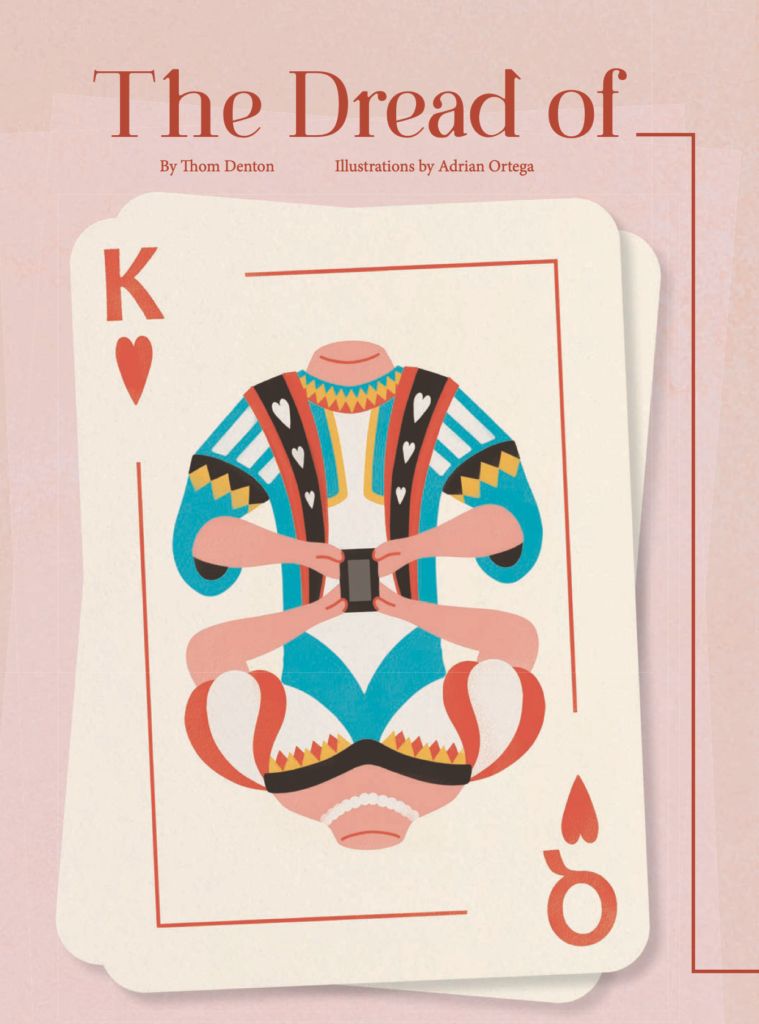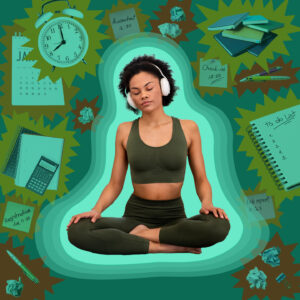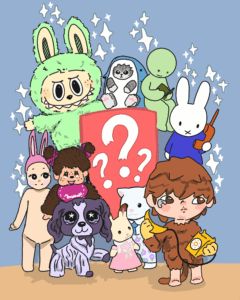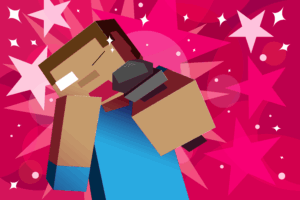The Dread of Modern Dating

When the internet became public about 30 years ago, many aspects of modern life advanced in unprecedented ways. Phones and tablets are now everywhere and allow us to stream and watch our favorite content virtually anywhere on the planet. One of the most brazen technological innovations impacting our lives is online dating.
Before the internet boom in 2000, it seemed many adults dreaded the dating scene. If ‘90s comedies taught us anything about dating at that time, it was that people either had to navigate their way through a minefield of unpredictable potential dates or submit to the terror of blind dates from family and friends. Despite their good intentions, family and friends were often wildly misguided in their attempts at matchmaking that restraining order seemed to reach a fever pitch at the time.
In 1995, two tech pioneers from San Francisco decided to give the dating world something new. They launched what became one of the first online dating sites, Match.com. According to Macrotrends, what started as a garage startup has now grown into a megacorporation that peaked at almost $3 billion in annual revenue in 2021 (at the height of the pandemic, no less). Match owns several major dating apps, including Tinder, PlentyofFish and OkCupid.
Today, according to Cloudwards.com, 19% of U.S. online users are on some online dating site, while another 27% say they have used one before. What is jarring is that only 13% of relationships started through online sites have ended in a serious long-term relationship.
In Anabel Homnack’s peer-reviewed article, Online Dating Technology Effects on Interpersonal Relationships, she argued that most people on dating apps are happy to hide behind their screens and continue swiping, constantly looking for something better. When they do decide to meet with someone in real life, they tend to be scared away by the slightest exposure to an imperfection which often cuts the relationship short.
“I am afraid that technology is becoming a substitute, addiction and even replacement for real life interactions,” Homnack wrote.
A mere 28 years into the online experiment, many young people have begun to see relationships as primarily non-confrontational/committal, affecting their mental and emotional health significantly. Like the many other digital tools that jostle our attention, online dating apps have become a game where dopamine is released with every new match or message. According to an article on Bustle, this happens regardless of the dating potential of that match or message. Some become so hypnotized by the simple act of swiping left or right that they no longer see the profiles they are swiping as belonging to actual people. One is quickly reminded of Facebook’s precursor Facemash, in which the young Harvard-enrolled Mark Z decided to put girls’ faces next to each other and encouraged other students to vote on who was prettier. This reduced students to little more than fodder for a quick laugh and stripped the objects of the demeaning mashup of any dignity. Those who participated embraced high levels of misogynistic high-fiving, which resulted in a simultaneous eruption of brofest chest bumping and head-tilted mascara-painted cheeks all over the Boston campus. That was almost 20 years ago.
Today we have gone from swiping to decide who was prettier to swimping on whom we want for connectionless sex. According to Pulse’s survey at the University of Texas Rio Grande Valley, 50 percent of students are looking for a “something casual” type of relationship. And maybe this is just a version of classic collegiate behavior, but perhaps there is something more sinister at play. Youtuber Mayim Bialik likened it to shopping for humans. “You see a couple of pictures of someone,” Bialik said in a video on the subject. “Then you decide if you want to buy them! Or rent them.”
And really, what are we seeing in these profiles? Technological innovations have long inspired society to grow comfortable making faster and faster judgments on the things we see, and most of what we end up seeing online are other people. We all labor over constructed profiles designed to broadcast the best version of ourselves.
If social media has taught us anything it’s that when a user works hard to perfectly curate a version of themselves they desperately want others to respond to, this behavior can result in the user wanting to become the version of themselves others engage with online because other online personas seem to appreciate the curate versions more that the real version of themself. And at this point, online profiles have become so ubiquitous one might assume most young people today are so preoccupied with maintaining their online image they could easily forget about the person they truly are, or not care.
Millennials and Gen Z are being forced to adapt to technology in ways we never imagined before and now it affects our relationships not only with others but with ourselves. Generations ago, answers were simplet, clear-cut, and rarely pertinent on a grand scale, but that isn’t what concerned people before the technology revolution. Impactful technical innovations typically take people several decades to adapt to. Now we ask ourselves, how long before we truly become aware of the effects of massive information access? On top of the access to information, current generations are the most diverse in history, making them more patient and understanding of outside culture. Still, it seems they lack serious personal relationships.
Among the many statistics from Briana McWilliams, a licensed and board-certified creative arts therapist specializing in millennial dating, one sticks out: only 29% of millennials and Gen Z have married at the same age as 59% of older generations. The same study found many of them have made a conscious decision to be single, citing the value of independence. But can this mindset be sustained? What happens if long-term relationships evaporate altogether?
To answer some of these questions, we spoke with local therapist Michael Harold, who has been working with clients for over 10 years and focuses on those suffering from anxiety, depression, addiction, trauma, and relationship issues. He has worked with his patients through the devastation of online dating.
In the interview, Harold shared what he has seen as the impact of online dating with his clients and the potential dangers.
What effects have you seen online dating apps have on people’s emotional state?
It’s definitely been negative. It’s so rare that they find someone that’s healthy enough for a relationship, or even interacts like a decent person. There’s so much anxiety that comes from the constant back-and-forth messaging of potential interests. I’ve had so many clients tell me it feels like they don’t know what’s ‘normal’ when they’re messaging people online or through the app. They often feel pressured to check their messages and respond quickly, so they don’t come off as rude or uninterested. They’re also worried they might miss ‘the one’ if they don’t answer their messages quickly enough. But then they get so anxious waiting for responses from the other side. My clients tell me they’ll sit there staring at their phones and think, “Why haven’t they messaged back yet? Did I say something wrong? Do they not think I’m interesting or attractive anymore? Maybe they’re just busy, but they answered right away for the past 2 days. What happened? What changed?” The questions go on and on. I have clients of all personality types with all different diagnoses and symptoms talking about this experience the same way. It’s not just my clients that already have high anxiety and trouble with self-esteem. There’s something about the nature of online, message-based dating that just triggers this kind of reaction in people. The only people I’ve seen that don’t have that kind of internal reaction are the ones that are more manipulative and disconnected in general. But their goal is different. They’re not looking to find a relationship. They’re either just looking to hook up, or they already have patterns of being an abusive partner. And that’s part of the problem too. There are a lot of manipulative and abusive people using these apps, and they intuitively know how to use specific language and delayed responses to get those reactions from people. They use those tactics to create anxiety and self-doubt in the other person to make it easier to manipulate them.
What would be your advice to someone who may not be emotionally or mentally healthy when it comes to online dating services?
Just don’t use them. First of all, there are plenty of people, men and women, that are just looking to hook or use people, and they can present just like someone who is sincere. There’s no way of knowing if someone is being genuine or just trying to use people. Even the apps that are geared toward giving the choice of making first contact to women, like Bumble or Hinge, have the same potential issue of creating a false sense of connection, it feels real. It’s easy for people to get excited and get their hopes up and then end up really disappointed.
What are some of the bad things that happen when people are on these apps?
It can become a never-ending search for ‘perfect’. There is no perfect partner. There is no perfect relationship. Humans actually get more anxious and have a harder time deciding when there are more options. Think about it. People’s dating options used to be limited to whoever was their age and living near them. They had to cross paths at school, or work, or in the community somewhere. They didn’t have access to every person their age within a 50-mile radius. But they still dated. And they still got married. And a lot of them (not all, but many) are still happy with their partner. I’m not saying anyone should settle for a relationship that isn’t healthy and satisfying, but it doesn’t have to be perfect to be great. Most of the work comes after the relationship starts no matter who we date. So it doesn’t make sense to put so much work into finding the ‘perfect’ partner before you’ve even met them. You’re still going to have to work at it.
Is this (online dating) something young people should even be doing?
If young people shift their mindset to dating apps being more of a larger pool of people to choose from blind dates, then they could be useful. If somebody’s profile seems like they’ve got similar interests and values, and you’re not thrown off by their first couple of messages or the first phone call, then it’s worth taking the leap. Don’t get stuck ‘building the relationship’ before you’ve ever met in person. Even with that said, most of my clients have ended up finding their long-term partners the old-fashioned way anyway. They met somebody in their regular life and made a connection. I think online dating or apps might play a part in some people finding good dating relationships, but they’ll never replace meeting people face to face. It’s okay to use them if you keep a good perspective about it. Don’t consider them the only option. And definitely don’t consider messaging and phone calls as enough interaction to really ‘know’ somebody. Don’t get stuck endlessly texting or calling back and forth. Make a plan to meet up quickly, in public, and do it.






